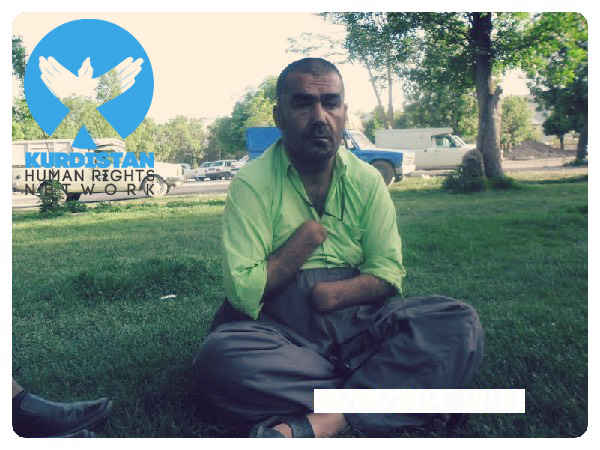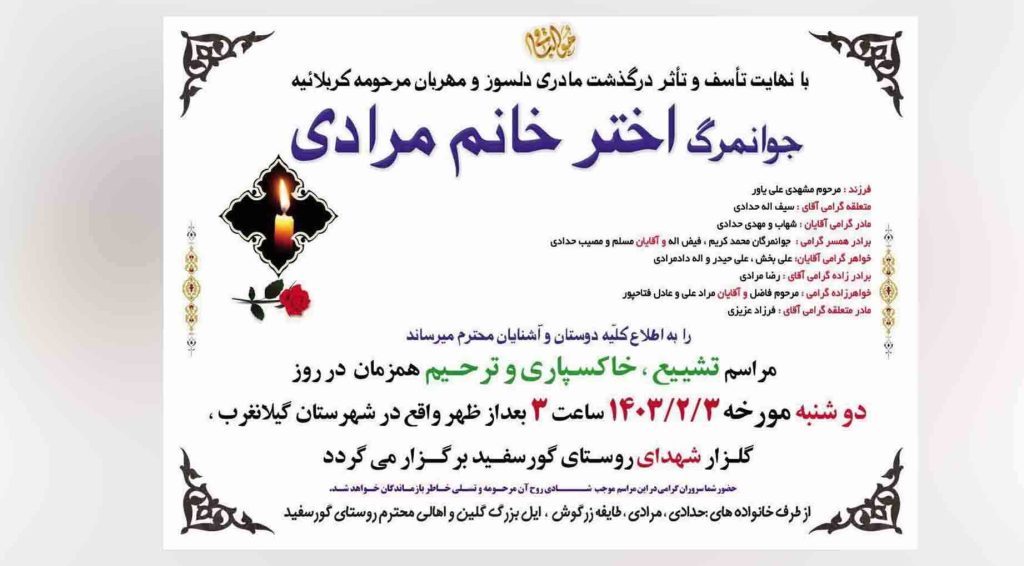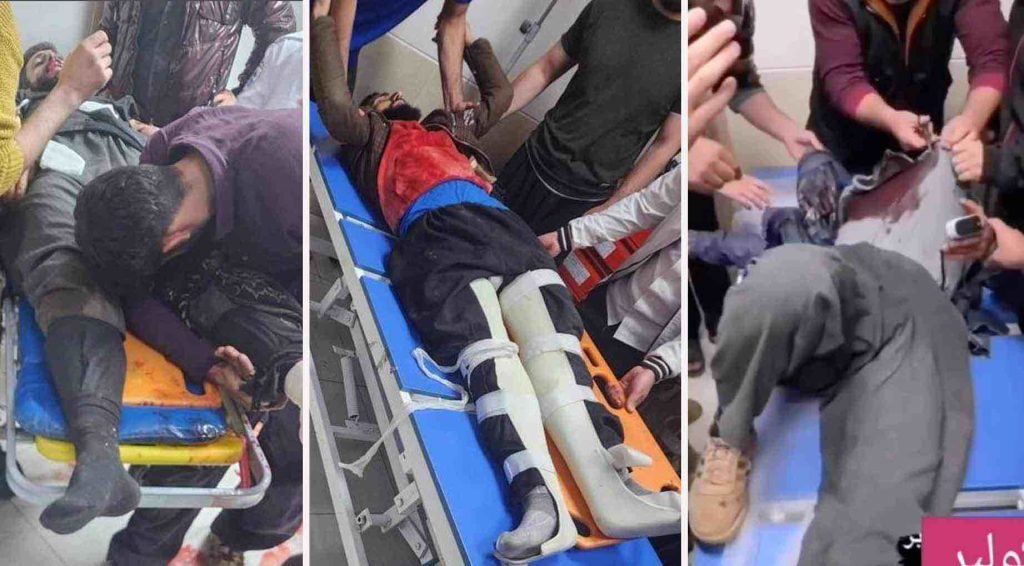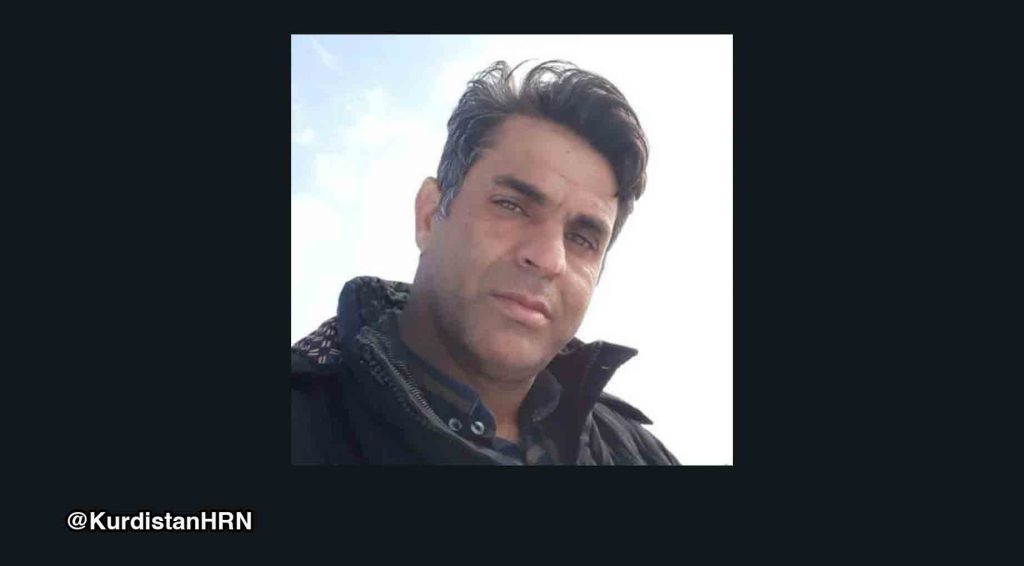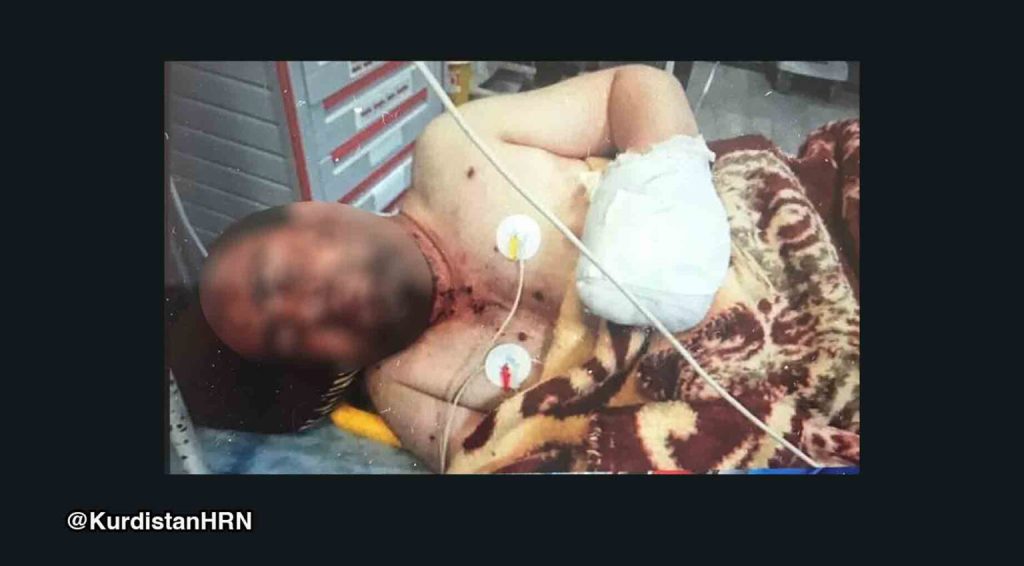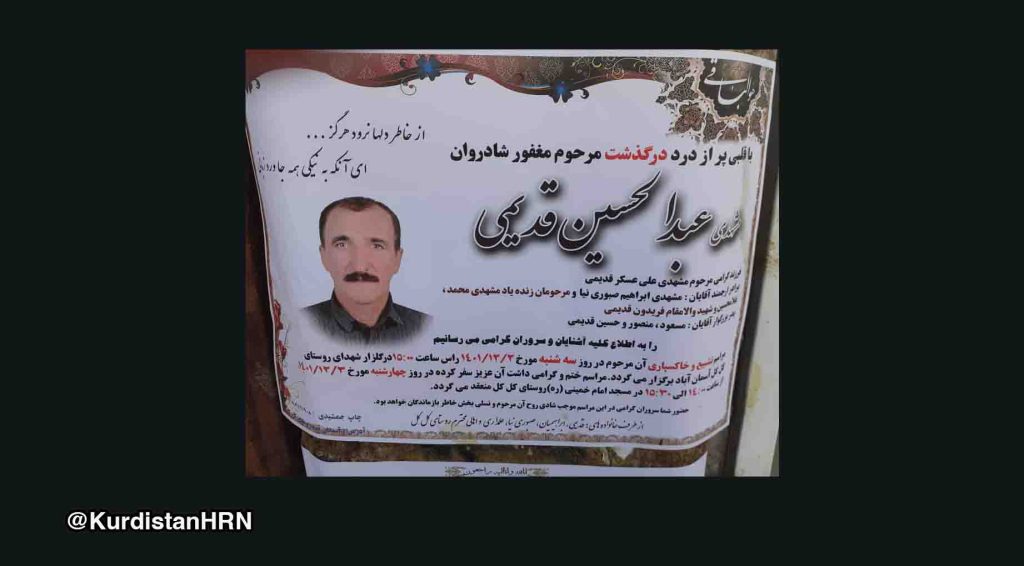Following publication of a series of stories about victims of land mines, KHRN below publishes the story of another Kurdish citizen Jalil Dudkanloo, who lost both of his eyes and hands to a land mine explosion when he was a ten-year-old child.
After its foundation following a revolution in 1979, the Islamic Republic of Iran began to establish military bases in the cities, towns and villages of the Kurdistan region.
Most of these military bases were built near civilian residential areas albeit international conventions against such actions.
Land mines were planted in the areas surrounding these military bases in the Kurdish areas near civilian homes.
The Iranian government used the presence of armed opposition Kurdish political parties and groups as a pretext to justify militarisation of the Kurdistan region.
The armed conflict in the Kurdistan region ended in the 1990s, few years after the Iran-Iraq war in the 1980s.
Most of these military bases were abandoned and the land mines were left in the fields, intact and without being deactivated, although the armed conflict had ended.
Many Kurdish children have since fell victim of land mine explosions while playing near their homes in those areas.
Jalil Dudkanloo, born in 1977, married, comes from the village of Pasweh near Piranshahr (also known as Xaneh or Khaneh), and he is one of the many victims whose childhood was destroyed by a land mine explosion.
He was playing in an abandoned military base where he found a mine and tried to pick it up, the mine exploded in his hands and he lost both his eyes and hands.
He was only 10 years of age when the incident happened.
Dudkanloo received an allowance from Janbazan Organisation, and this income is usually used for injured and disabled veterans
He had received the salary for around ten years, but he was suddenly deprived from being paid the allowance for unknown reasons.
The Janbazan Organisation has since deprived him of any help or services although he is desperately in need of support.
His family relatives have since provided him with whatever help and support they can offer, which is is because he is unable to do any work.
He is still waiting for Janbazan Organisation to one day agree to resume the payment of his allowance.

